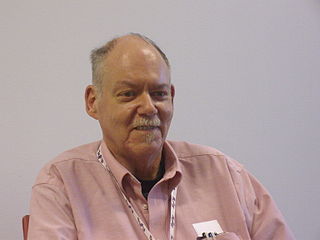A Quote by Glen Cook
The people come from everywhere, from five hundred miles, to find their fortunes. By fortune is an ugly, two-faced goddess. When you have lived with her handiwork for half a generation, you hardly notice anymore. You forget that this is not the way life has to be. You cease to marvel at just how much evil man con conjure by existing.
Related Quotes
For a man can lose neither the past nor the future; for how can one take from him that which is not his? So remember these two points: first, that each thing is of like form from everlasting and comes round again in its cycle, and that it signifies not whether a man shall look upon the same things for a hundred years or two hundred, or for an infinity of time; second, that the longest lived and the shortest lived man, when they come to die, lose one and the same thing.
I remember attending Toronto Comicon shortly after the release of Captain Marvel and seeing a five-year-old girl who'd come in a handmade Captain Marvel outfit with her hair moussed up - and I totally got the need for this book, for this hero. Someone who looks like her, and acts like her. So, in a way, Captain Marvel helped pave the road to the expanded role of female leads.
She was beautiful in combat. I know that’s a crazy thing to say, especially after we’d just climbed a sewage waterfall, but her gray eyes sparkled when she was fighting for her life. Her face shone like a goddess’s, and believe me, I’ve seen goddesses. The way her Camp Half-Blood beads rested against her throat—Okay, sorry. Got a little distracted.
It is also true that the less possible it becomes for a man to acquire a new fortune, the more must the existing fortunes appear as privileges for which there is no justification. Policy is then certain to aim at taking these fortunes out of private hands, either by the slow process of heavy taxation of inheritance or by the quicker one of outright confiscation. A system based on private property and control of the means of production presupposes that such property and control can be acquired by any successful man.
People need to understand. If they go to a show on Broadway and find seventy people working but only fifty spectators, how much would the ticket cost? That's what El Bulli's about. There are seventy actors who are playing for just fifty spectators. Is the price expensive? It's relative. How much does a normal dinner at a five-star hotel restaurant cost? Four hundred dollars. It's the same as El Bulli. But you can also think of it this way: How much would it cost to eat something that nobody else is eating?
I find that life just gets in the way and it gets so busy and there's so much chaos and stress that can come along with raising two teenage girls in Los Angeles and being married and working and, you know, everything that goes along with it. It's how do you find those calm moments, because everybody has this in their life.
It [the Civil War] was a heroic struggle; and, as is inevitable with all such struggles, it had also a dark and terrible side. Very much was done of good, and much also of evil; and, as was inevitable in such a period of revolution, often the same man did both good and evil. For our great good fortune as a nation, we, the people of the United States as a whole, can now afford to forget the evil, or, at least, to remember it without bitterness, and to fix our eyes with pride only on the good that was accomplished.
You have to understand. I am no one special. I am just a single girl. I am five feet two inches tall and I am in-between in every way. But I have a secret. You can build walls all the way to the sky and I will find a way to fly above them. You can try to pin me down with a hundred thousand arms, but I will find a way to resist.

































